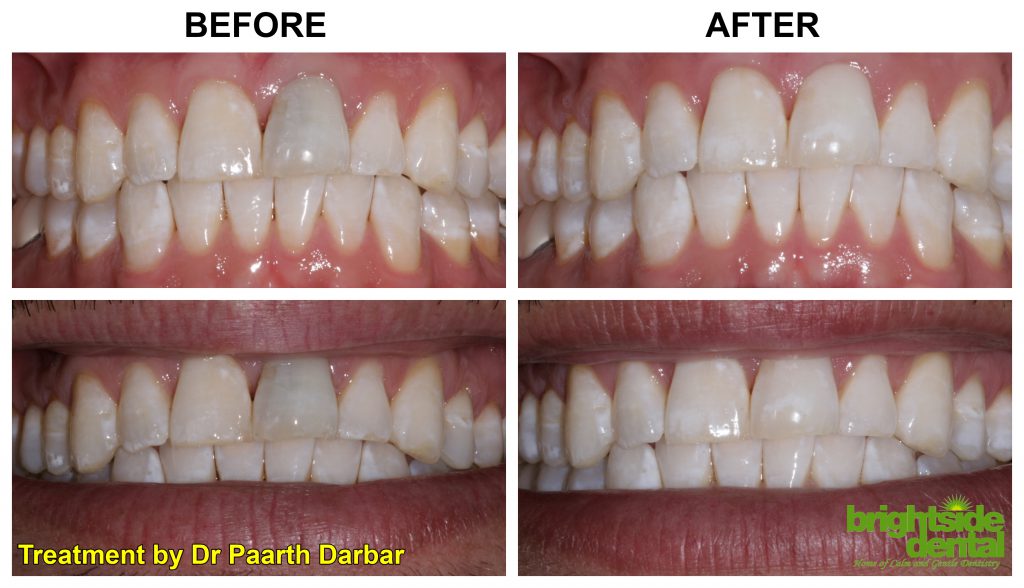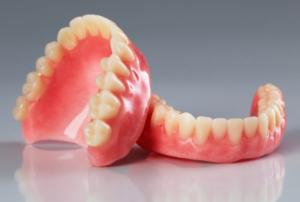A root canal is a dental procedure that treats the inside of the tooth. Before, the tooth is infected or decayed, causing pain.
After the root canal, the tooth is cleaned, sealed, and restored to function normally. Root canal treatment is a common dental procedure that can save a tooth from extraction. It involves removing the infected or damaged tissue from the inside of the tooth, cleaning the area, and sealing it to prevent future infections.
After a root canal, the tooth is usually restored with a crown to protect it from further damage. Although the procedure may sound daunting, it can provide relief from tooth pain and restore the functionality of the affected tooth. Understanding the process and what to expect before and after a root canal can help alleviate anxiety and improve the overall experience.

Credit: www.drnickdds.com
Before The Root Canal
Before undergoing a root canal, it’s important to be aware of the symptoms that may indicate the need for this procedure. Common symptoms include persistent toothache or sensitivity to hot and cold temperatures, severe pain when biting or chewing, swelling of the gums, and a persistent bad taste in the mouth. These symptoms may vary in intensity, but if you experience any of them, it’s crucial to seek a proper diagnosis from a dentist. During the diagnosis, your dentist will examine the affected tooth and may use X-rays to determine the extent of the damage and the need for a root canal. It’s essential to address these symptoms promptly to prevent further complications and to ensure the best possible outcome in your dental health.

Credit: www.loneoakdental.com
During The Root Canal
The root canal procedure involves removing infected pulp and cleaning the inside of the tooth.
Anesthesia is administered to ensure the patient’s comfort throughout the process.
After The Root Canal
After the Root Canal: Recovery can take a few days. It’s common to experience mild discomfort. Taking prescribed medication is crucial for pain management. Avoid chewing on the treated tooth until a permanent filling or restoration is placed. It’s important to maintain good oral hygiene to expedite healing. Brush gently and rinse with a warm saltwater solution. Stick to soft foods while you heal. Follow post-treatment care instructions diligently to ensure a smooth recovery.
Benefits And Risks
Root canal procedures have both benefits and risks. Before undergoing this treatment, it is important to understand the potential improvements to your oral health, such as pain relief and restored functionality. However, risks like infection and damage to surrounding teeth should also be considered and discussed with your dentist.
Benefits
Undergoing a root canal treatment offers several benefits. First and foremost, this procedure can save your natural tooth, preventing the need for extraction and the potential complications that can arise from tooth loss. By removing the infected pulp and sealing the tooth, a root canal can effectively eliminate pain, discomfort, and sensitivity caused by an infection. Additionally, preserving your natural tooth through root canal therapy helps maintain proper chewing function, allowing you to continue eating your favorite foods without difficulty. Furthermore, a successful root canal procedure can restore the appearance of your tooth, ensuring a natural-looking smile. Overall, the benefits of a root canal far outweigh any potential risks.
Risks
While a root canal is generally considered safe and successful, there are a few risks to be aware of. One potential risk is the possibility of reinfection if the tooth is not properly sealed or if bacteria re-enters the treated area. This highlights the importance of good oral hygiene and regular dental check-ups to prevent any complications. Occasionally, a root canal-treated tooth may fracture or become weak over time, which may require additional dental treatment such as a crown to strengthen and protect the tooth. It’s important to discuss any concerns or potential risks with your dentist, who can provide personalized advice based on your specific dental condition.

Credit: www.brightsidedental.co.uk
Frequently Asked Questions For Before After Root Canal
Q: How Long Does It Take To Recover After A Root Canal?
A: Recovery time after a root canal varies from person to person, but typically you can expect to feel normal within a few days. It is important to follow your dentist’s instructions for post-treatment care to ensure a smooth and speedy recovery.
Q: Is A Root Canal A Painful Procedure?
A: While the idea of a root canal may sound daunting, the procedure itself is not typically painful. Your dentist will ensure that the area is numb before starting and may provide sedation for those who experience dental anxiety. After the procedure, there may be some mild discomfort which can be managed with over-the-counter pain medication.
Q: Can A Root Canal Save A Severely Infected Tooth?
A: Absolutely! A root canal is performed to save a tooth that has severe infection or decay. During the procedure, the infected pulp is removed and the tooth is cleaned and sealed to prevent further infection. This allows the tooth to be preserved and continue functioning in your mouth.
Q: How Long Does A Root Canal Procedure Typically Last?
A: The duration of a root canal procedure depends on various factors, such as the location of the tooth, complexity of the case, and the patient’s specific needs. On average, a root canal can take around 90 minutes to complete.
Your dentist will be able to provide a more accurate estimate based on your specific situation.
Conclusion
In a nutshell, getting a root canal can provide significant relief from the pain and discomfort caused by dental issues. By removing infected pulp and restoring the tooth, this procedure not only saves your natural tooth but also improves your oral health.
Remember to follow good dental hygiene practices and visit your dentist regularly to maintain the long-term success of your root canal treatment.










